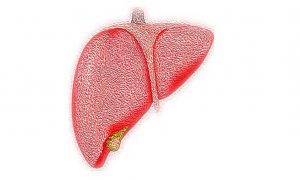Researchers have found an association between cancer and acrylamide, an industrial chemical generated during processing of food. All you want to know.
Ultra-processed foods have made their way in some form of the other in nearly all our meals. Many of us start our super-busy day with a bowl of sweetened breakfast cereal which are marketed to be a healthy product. However, the high sugar in it can raise the blood sugar levels and reduce glucose tolerance. It is also common for people to start their day with cookies and coffee or biscuit and tea. However, these ultra processed foods that are high in fat, sugar, salt and artificial ingredients not only increases risk of many chronic diseases but also of the most deadly of all – cancer. Researchers have found that ultra-processed foods is associated with greater risk of overall cancer and specifically ovarian and brain cancer.
Read More: THIS one drink helps your body fight heart disease and cancers
“Ultra processed foods undergo heavy processing during production. They include items such as soft drinks, breakfast cereals, cookies and ready-to-eat meals. Such foods are high in fat, sugar, salt and artificial ingredients,” says Dr Ranjan Singh, Lead Consultant – Medical Oncology, CK Birla Hospital (R), Delhi.
Dr Singh also elaborated on a study by researchers at Imperial College, London, School of Public Health, that assessed the diets of 2 lakh middle aged adults over 10 year period and found higher consumption of ultra-processed foods is associated with greater risk of overall cancer and specifically ovarian and brain cancer.
“For every 10% increase in ultra processed foods in a person’s diet, there was an increased incidence of 2% for cancer overall and a 19% increased risk for ovarian cancer. Research has found an association between cancer and acrylamide, an industrial chemical generated during processing of food.
Food additives and chemical agents generated during processing may interfere with hormone effects and thereby increase the risk of ovarian cancer. Besides this the study have shown that intake of ultra processed food predisposes to obesity, hypertension, diabetes and colon cancer,” says Dr Singh.
“Our bodies may not react the same way to ultra processed ingredients as they do to fresh and minimally processed foods. Such foods are likely to negatively impact our health. Thus including fresh, nutritious and minimally processed foods in our diet is an important preventive measure against cancer,” adds Dr Singh.
Read More: Good For Heart And Stomach; 4 Amazing Health Benefits Of Eating Figs
Other risk factors for ovarian cancer
Ovarian cancer is estimated to be the third most common cancer among Indian women constituting approximately 40,000 cases being diagnosed per year. It is also one of the leading causes of death from cancer among Indian women.
“The usual risk factors for developing ovarian cancer include a long estrogen window (early menarche and late menopause), nulliparity and older age at first childbirth (more than 35 years), hormone replacement therapy (HRT), tobacco smoking and exposure to asbestos,” says Dr. Peush Bajpai, HOD and Consultant Medical Oncology, HCMCT Manipal Hospitals, Dwarka.
Reasons for early-onset ovarian cancers
Dr Bajpai talks about other factors that may be causing an increase in the cases of ovarian cases in women.
“Studies on other potential risk factors, such as obesity, infertility, endometriosis, sedentary lifestyle, smoking and alcohol consumption also have conflicting results. Recently there have been studies linking ultra-processed food (like energy” or sports drinks, packaged cookies, candies, pre-prepared pizza and packaged meats, and sweetened and flavoured yogurts) with ovarian cancer. These are also linked with obesity and diabetes- which are supposed to be associated with an increased risk of cancers in general. A family history of ovarian cancer in two or more first-degree relatives increases risk and is also associated with early-onset disease. A personal history of breast cancer prior to 40 years of age, or a personal history of breast cancer prior to 50 years of age with a family history of breast or ovarian cancer also increases the risk,” adds Dr Bajpai.





































